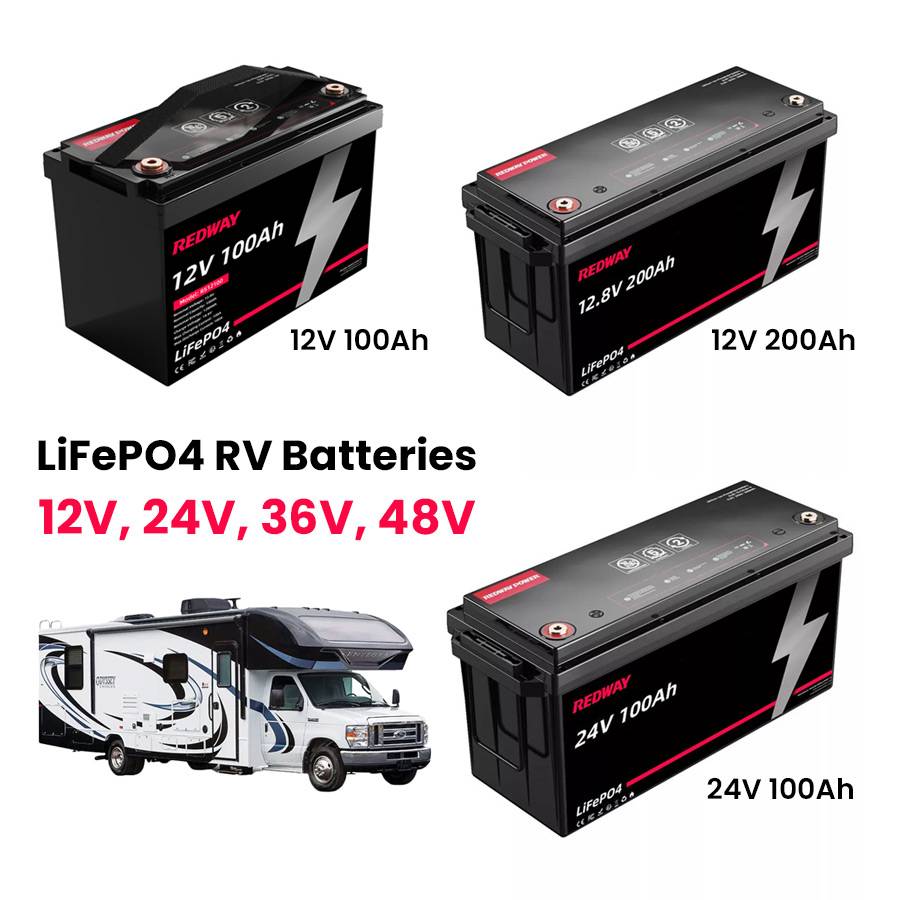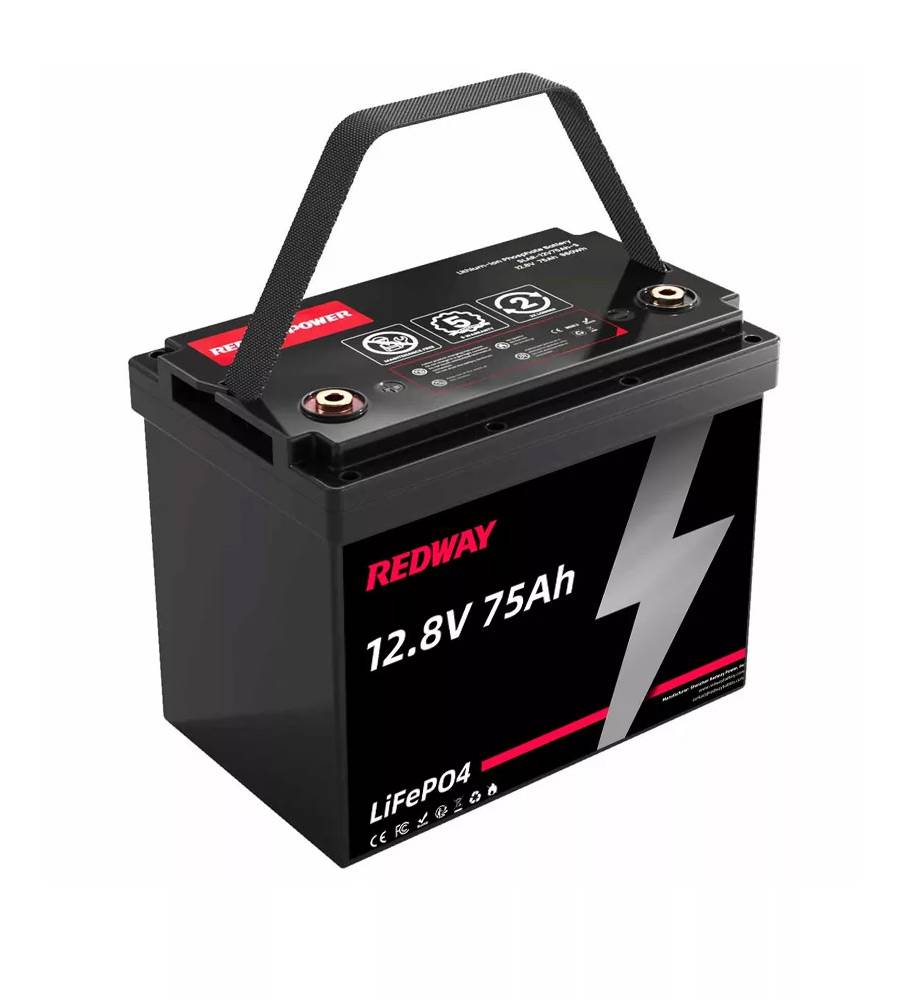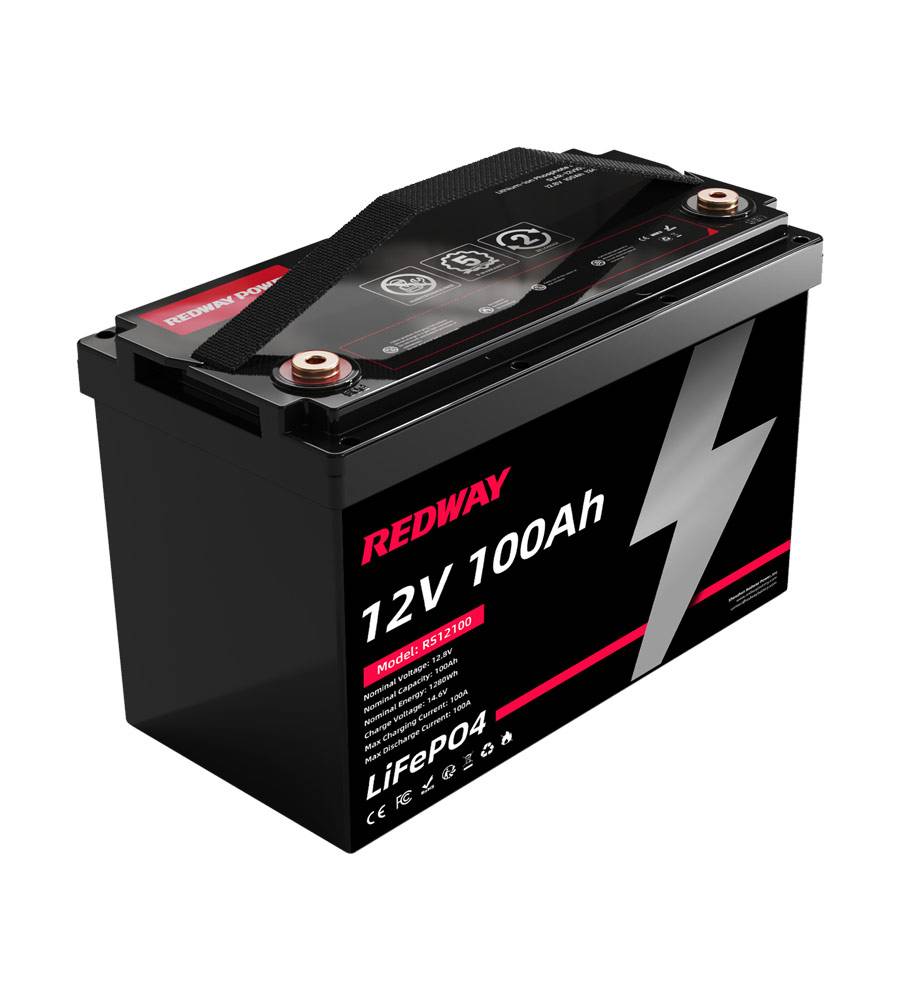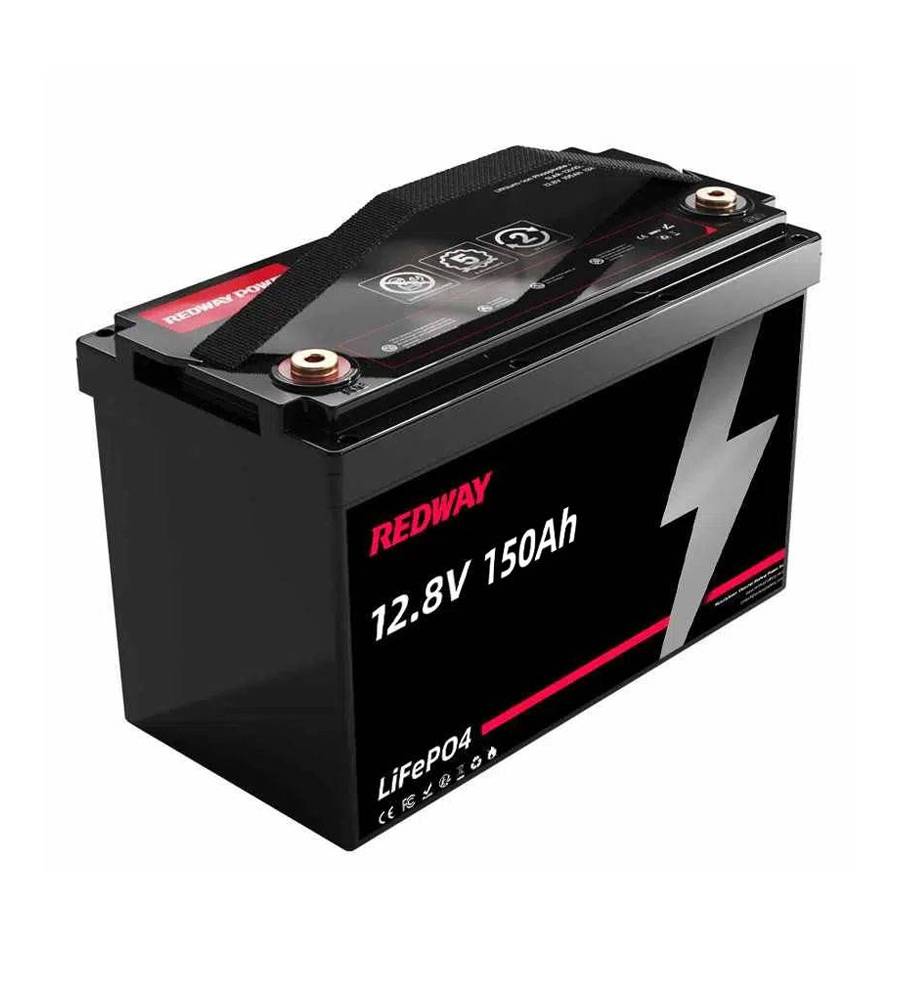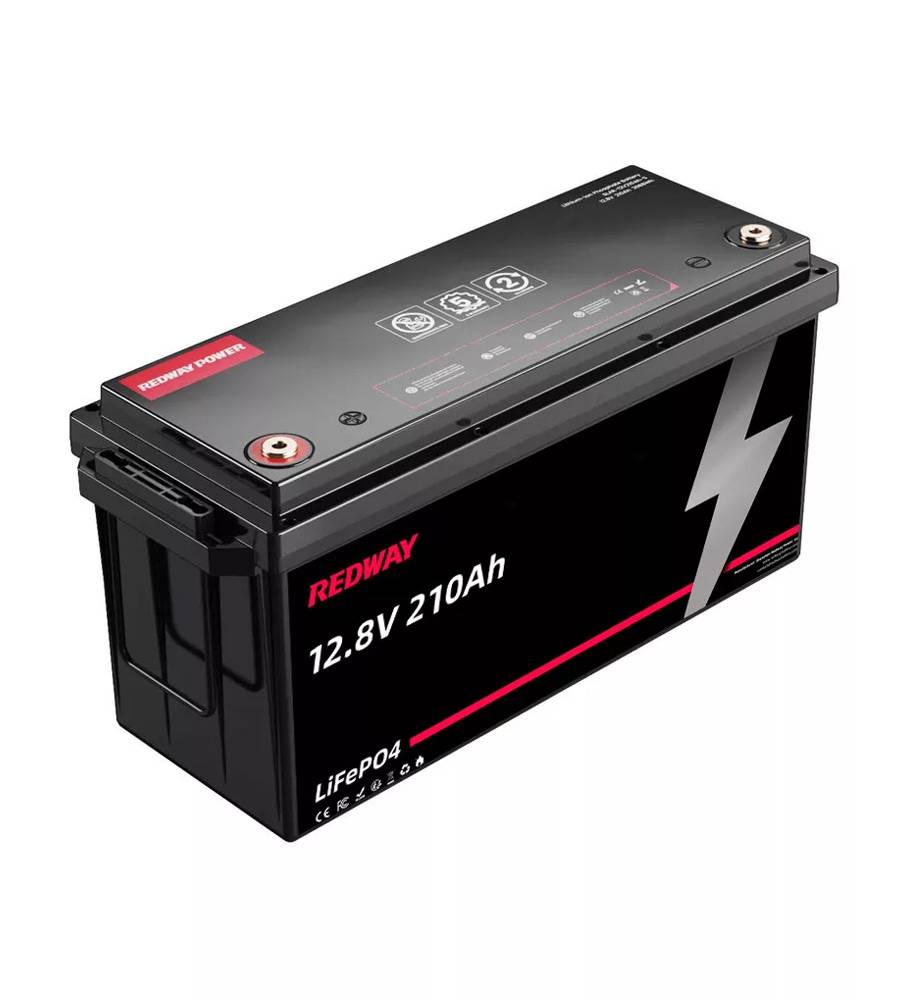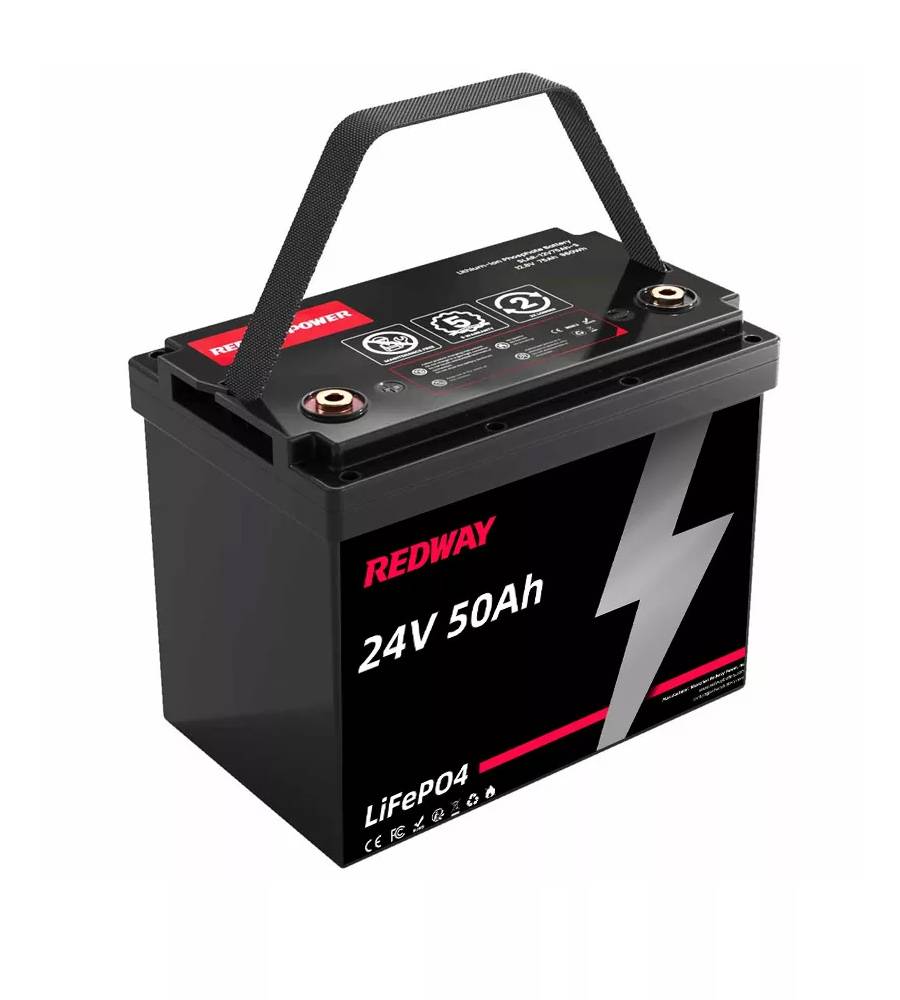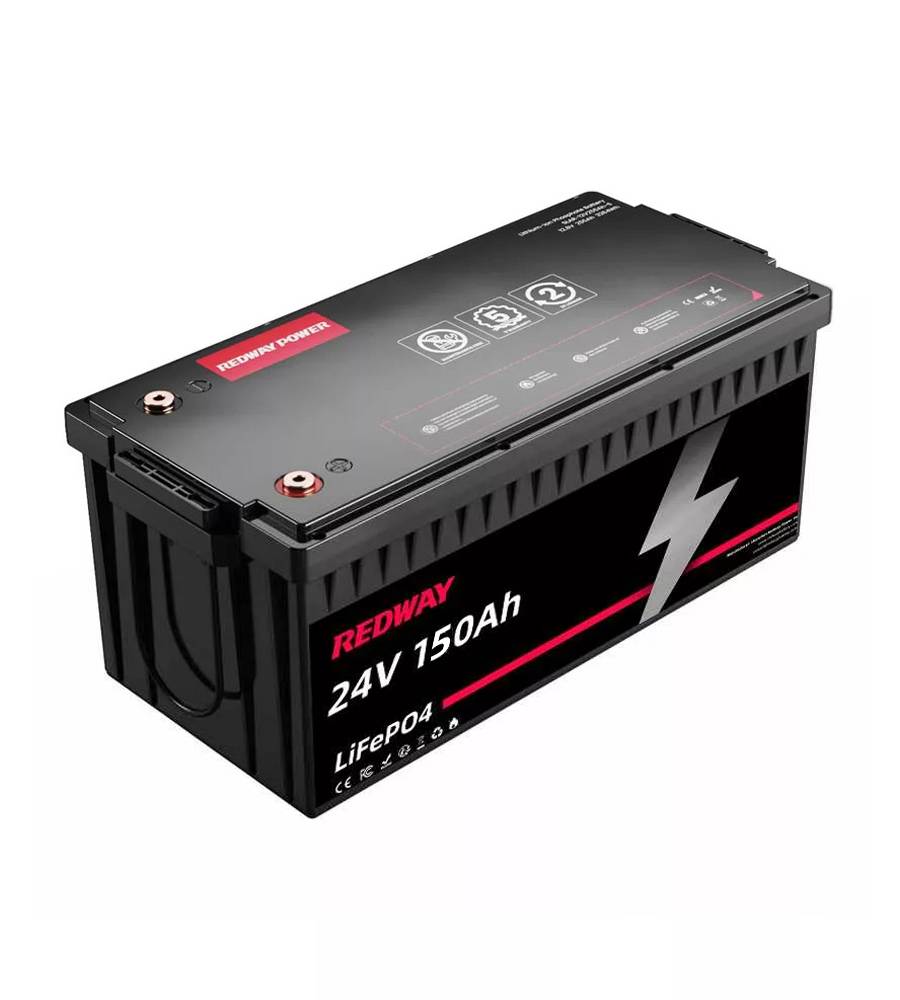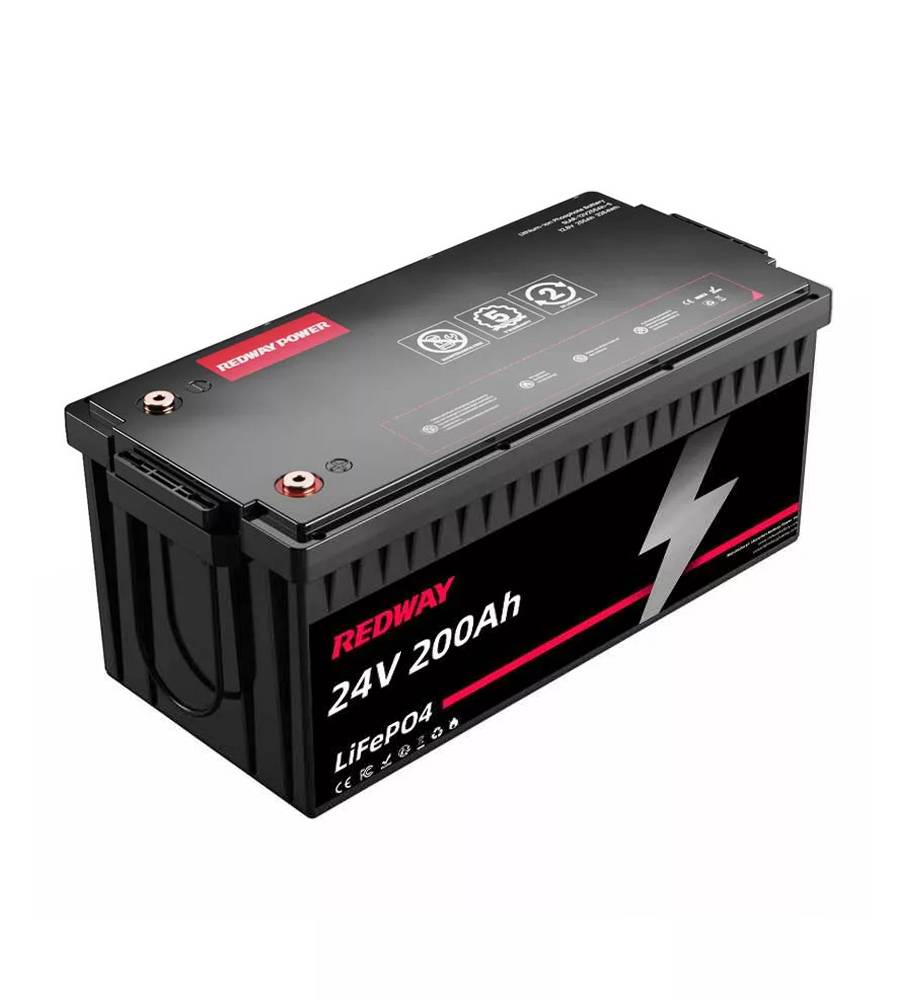LiFePO4 RV Batteries Manufacturer
LiFePO4 RV Batteries One-Stop Solution
Redway offers a diverse range of LiFePO4 RV Batteries to cater to your varied needs. As a leading manufacturer in this domain, we provide lithium ion batteries, deep cycle lithium ion batteries, and specialized lithium ion batteries tailored for specific applications.
Our seasoned team of battery experts is committed to assisting you in choosing the optimal LiFePO4 RV Battery design that aligns with your unique battery application requirements. We leverage the appropriate manufacturing processes to ensure precision and reliability in crafting each battery solution.
Choose Your LiFePO4 RV Batteries Manufacturer
Custom LiFePO4 RV Batteries
What is the wholesale price of lithium battery?
You can click contact us or phone call us. We will give you multiple options of price.
Is Redway Power a trading company or factory?
Redway Power is a company with its own factory, integrating research, development, production, and sales.
How about the quality of Redway's LiFePo4 Battery product?
Redway Power boasts over 12 years of experience in LiFePO4 battery production and is an authorized supplier for CATL and BYD.
Can you do an OEM/ODM project?
Yes, we have engineers available to assist in designing and developing any related products.
What’s your MOQ?
MOQ varies according to battery voltage and capacity.
What payment terms can we accept?
We accept TT/Paypal/West Union, etc.
LiFePO4 RV Batteries Knowledge
Lithium RV batteries offer many advantages. They last longer, are lighter, and store more energy than other types. They’re easy to install and maintain, don’t emit harmful fumes, and work well in various temperatures. When choosing lithium batteries, consider their cost over time. Remember to follow manufacturer guidelines and seek professional advice for safe installation.
Here’s a simple breakdown of lithium batteries for your RV:
Advantages of Lithium Batteries:
- Longer Lifespan: Lithium batteries can last up to five times longer than traditional lead-acid batteries.
- Lightweight: They are much lighter, making them ideal for RVs where weight is a concern.
- Efficient Charging: Lithium batteries charge faster and more efficiently than other types, ensuring you have power when you need it.
Easy Installation and Maintenance:
- Compatibility: They can be easily installed in any RV that uses house batteries, with similar connections to lead-acid batteries.
- Low Maintenance: Unlike lead-acid batteries, lithium batteries require minimal maintenance, saving you time and hassle.
Cost Consideration:
- Initial Investment: While lithium batteries may have a higher upfront cost, their longer lifespan and superior performance can make them a worthwhile investment in the long run, potentially saving you money on replacements and maintenance.
Switching to lithium batteries can enhance your RV experience, providing reliable power for your adventures.
Changing your RV converter for lithium batteries might be necessary due to voltage, charging profile, and current differences. Lithium batteries need specific charging profiles and higher currents. Smart converters can adjust settings. Consult professionals for guidance.
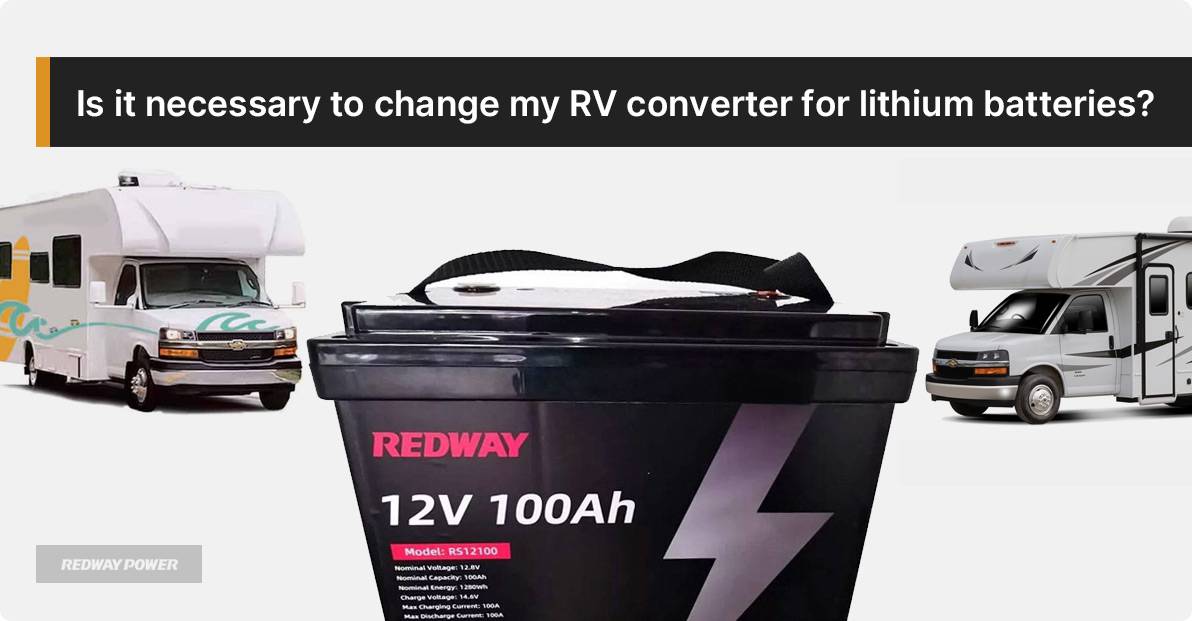
Explaining why you might need to change your RV converter when switching to lithium batteries is important. Here’s why:
Voltage and Charging Differences:
- Lithium batteries and traditional lead-acid batteries operate at different voltage levels. Lithium batteries also require specific charging profiles.
- The existing converter in your RV might not be optimized for charging lithium batteries, leading to inefficient charging and potential battery damage.
Current Requirements:
- Lithium batteries can accept higher charging currents compared to lead-acid batteries.
- If your converter cannot deliver the necessary current, it may result in slower charging or inadequate power supply to your lithium batteries.
Consider Smart Converters and Professional Advice:
- Smart converters can adjust charging settings for different battery types, ensuring efficient charging.
- It’s advisable to seek professional advice or consult your RV manufacturer’s guidelines before making any changes to your RV’s electrical system.
To properly store lithium-ion batteries, keep them in a cool, dry place away from extreme temperatures and direct sunlight. Maintain a 50% charge level and avoid full or empty states. Use original packaging or specialized cases, and periodically check the charge level. Safety measures include identifying battery types and considering fire detection and suppression.
Here’s what you need to know:
Location and Conditions:
- Find a cool, dry spot away from direct sunlight and extreme temperatures for battery storage.
- Aim for around 50% charge and avoid storing batteries fully charged or empty to maintain their health.
Packaging and Maintenance:
- Use original packaging or specialized cases for storage to prevent damage.
- Regularly check the battery’s charge level and recharge if needed to avoid over-discharge.
Safety Measures:
- Identify the type of battery and consider safety measures like fire detection and suppression.
- Following these guidelines ensures your batteries stay safe and perform well over time.
You can charge lithium batteries with RV generators. Safety first: operate outdoors, keep level, and check cables. Charging steps: check oil, start generator, warm up, then plug in RV cord. Lithium batteries handle deeper discharges, and charging times vary based on capacity.
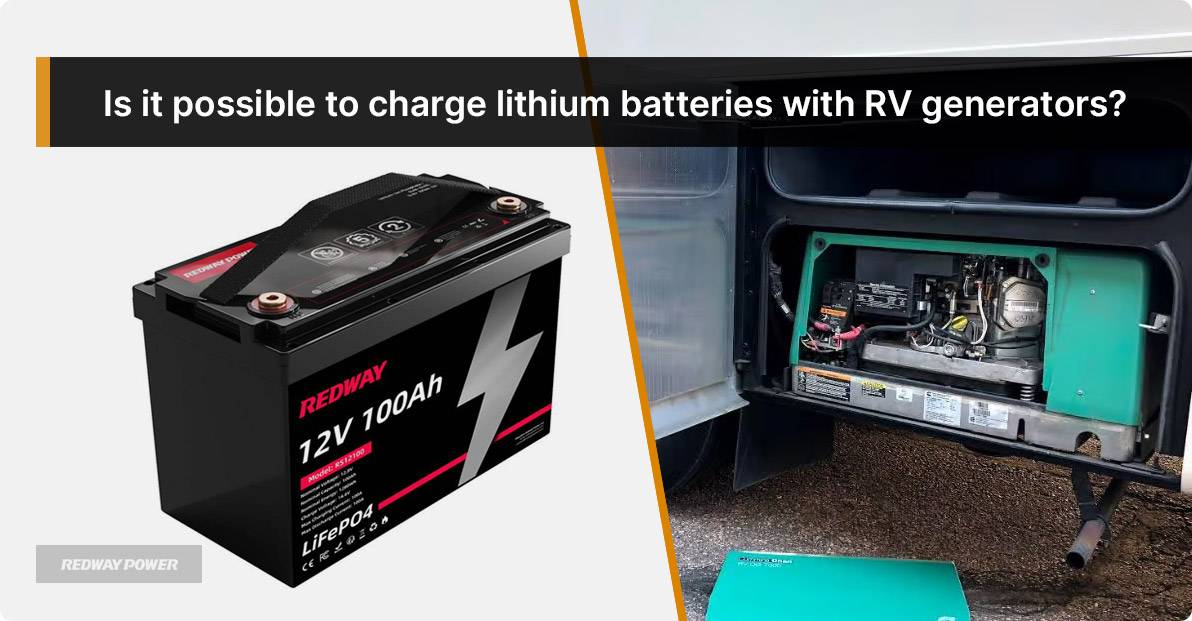
Let’s break down how you can charge lithium batteries with RV generators in simple steps:
1. Safety First: Before anything else, ensure safety. This means using the generator outside, inspecting cables for damage, and keeping it on level ground to prevent accidents.
2. Charging Steps: Once you’ve ensured safety, it’s time to charge. Check the oil and fuel levels in the generator, start it up, let it warm up for a bit, and then connect the RV power cord to begin charging your lithium batteries.
3. Understanding Lithium Batteries: Unlike other types, lithium batteries can handle deeper discharges without harm. This means you have more flexibility in using them without worrying about damaging them. Just remember, the time it takes to charge them can vary based on their capacity.
When your RV battery is plugged in, it’s usually best to leave it connected. Here’s why: 1. Charging: The RV’s converter system keeps the battery charged, maintaining its health. 2. Battery Protection: Leaving it connected protects against drainage. 3. Solar Charging: External chargers provide better charging. Only disconnect for long-term storage to prevent drainage.
Here’s why:
1. Charging: The RV’s converter system charges the battery, ensuring it stays healthy and ready to use whenever you need it.
2. Battery Protection: Leaving the battery connected prevents it from losing charge, so you won’t have to worry about it running out unexpectedly.
3. Solar Charging: If you have extra chargers like solar panels, they work better when the battery is connected, keeping it powered up efficiently.
In short, unless you’re storing your RV for a long time without using it, it’s best to keep the battery connected for smooth sailing on your travels!
When an RV battery is fully drained, it can suffer damage and reduced lifespan due to overdraining and sulfation. Over time, this leads to decreased usable capacity and may require replacement. To prevent these issues, maintain proper charging practices and monitor charge levels regularly. Practice regular maintenance to extend the battery’s lifespan and avoid early replacement.
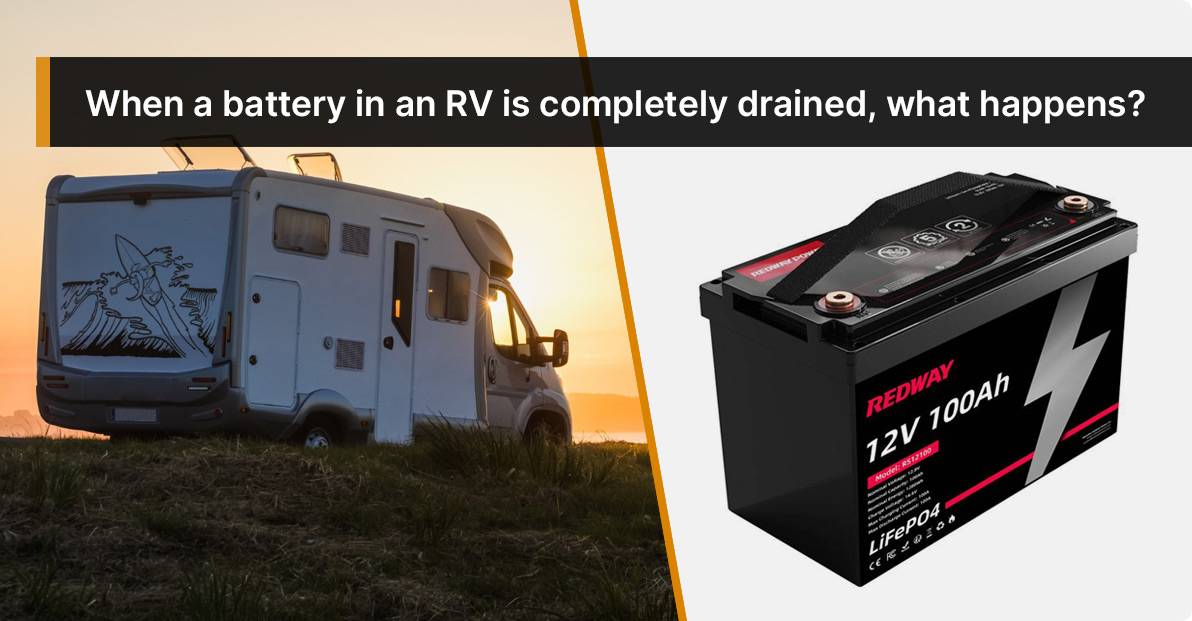
When an RV battery gets completely drained, it faces serious problems:
1. Overdraining Damage: Draining the battery beyond its limit damages it, reducing its ability to hold charge and ultimately causing it to stop working.
2. Sulfation: If the battery stays drained for too long, it develops sulfation, which is like a layer of gunk that builds up inside, making it harder for the battery to work properly.
3. Reduced Lifespan: Constantly letting the battery drain completely shortens its life, meaning you’ll have to replace it sooner. To avoid these issues, it’s important to keep an eye on your battery’s charge and recharge it regularly.


